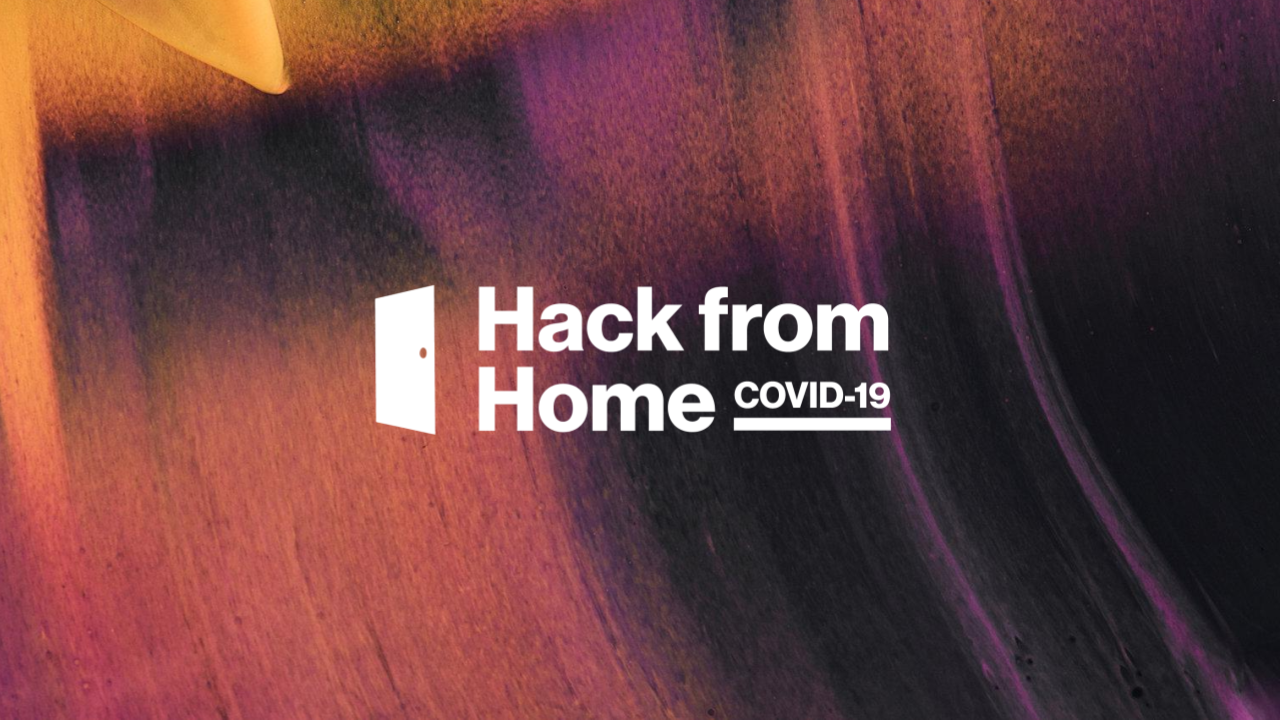
Last weekend, 822 developers, designers, product managers, subject experts and concerned citizens from over 40 countries came together to build privacy-preserving applications that can help fight the Coronavirus. After 48 hours of collaboration, buzzing slack channels and non-stop hacking, 28 projects were submitted on the 5th of April at 23:59 BST.
Hack from Home launched as a virtual hackathon, sponsored by Dataswift.io, and was organised by the Ethical Tech Alliance, HAT-LAB, Case Western Reserve University’s xLab and Cleveland Clinic’s Hwang Lab. The aim was to give people the chance to respond with action, to create apps useful in fighting the spread and social effects of the pandemic, and to promote the open sharing of ideas and innovation.
When we first considered launching the Hack from Home initiative our discussions were rooted in two interwoven reflections on the the situation as it escalated:
Firstly, there was clearly a sense of global urgency to fight the pandemic. The international tech community, as a collective of creators, innovators, social entrepreneurs and domain experts is so well placed to design and deploy tools that can actually save lives. In launching the hackathon we wanted to facilitate that collective effort by bringing technologists together in a concentrated way to respond with action: to help communities, patients and families by using what we know best – technology.
As the magnitude of the epidemic grew and as techies and governments around the world moved quickly to deploy tools at scale to help contain the spread of the infection, here at HAT-LAB we were attuned to a more concerning phenomenon.
There’s been a lot of focus on using location data from mobile phones to track the movement of individuals. At a fairly benign level, for example, this is being transferred into useful applications that help users to see where infected individuals have been and if their paths have crossed. In a more intrusive way, we’ve seen some cases where governments use similar technology to closely monitor their people. The Chinese green, yellow, red citizen grading framework, for example, assigns a colour to citizens depending on the severity of their symptoms – a tool that has raised worries of potential digital surveillance.
Here lies a second sentiment that gave way to the hackathon.
To avoid something like a surveillance creep, we felt there was a great need to develop tools that fight Covid from a place that not only preserves personal-data privacy but allows individuals to maintain their sense of agency by giving them control over their sensitive data.
We recognised this as a rather delicate balancing act here between wanting to respond to the crises urgently but doing it in a way that doesn’t dilute our fundamental human rights of individual autonomy and agency.
This idea of preserving agency is core to our mission at the HAT-LAB. With the HAT (Hub-of-all-Things) microserver allowing users to capture and own their data we act as a research and innovation space for the wider HAT ecosystem.
As a crisis that requires exceptional international collaboration. HAT-LAB launched the Hack from Home project in partnership with a global network that included Case Western University, NHSx, Samsung Medical Center, IQ Capital, The University of Warwick, UCL, University of Surrey, University of Exeter and other like-minded institutions.
The Hack from Home lowdown
The hackathon was a 48hour event taking place on the 4th and 5th of April and saw participants form teams to create their solutions. The projects that participants collaborated on fed into one of three streams:
Citizen science: to empower individuals to help healthcare and the government tackle the disease faster
Community health: applications that help the vulnerable, or ensure communities have the resources to make it through.
Mass coordination: apps that unlock the power of personal data, to ethically help our mobilisation and coordination of resources.
To support the hacking activity we hosted a series of live virtual lectures and panel discussions from domain experts and academics. The content considered a number of issues thematically fed into our 3 core streams and was fruitful in supporting the project work of out participants. Titles ranged from “The Epidemiology of Covid-19” and “Differential Privacy” to “Coronavirus and the smart-city” and “Society, technology and the Pandemic”.
Our open values: HAT-LAB will take no IP in any of the winning ideas, and encourages all projects to open source their work. Through our partnership with JOGL, winning projects will be offered research grants to do further work post hackathon – but only if they promise to open-source their results.
The judging: is to take place over the coming days with the most promising applications to receive further support from the organisers and our partners. Look out for updates from the HAT-LAB team – www.hat-lab.org – where you can see winning projects really making a difference.
James Kingston, Deputy Director, HAT-LAB
Sam Meeson Frizelles, Junior Researcher, HAT-LAB





